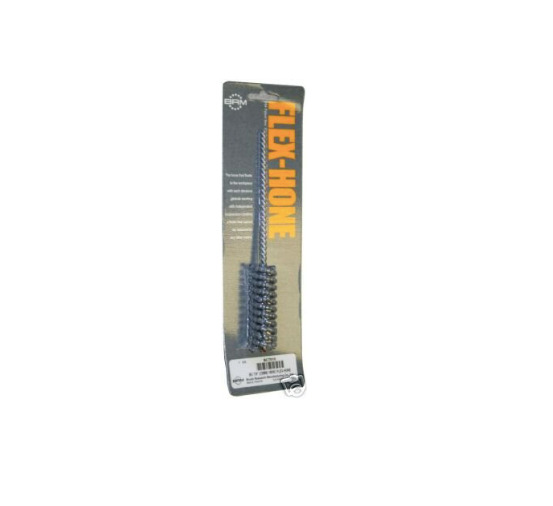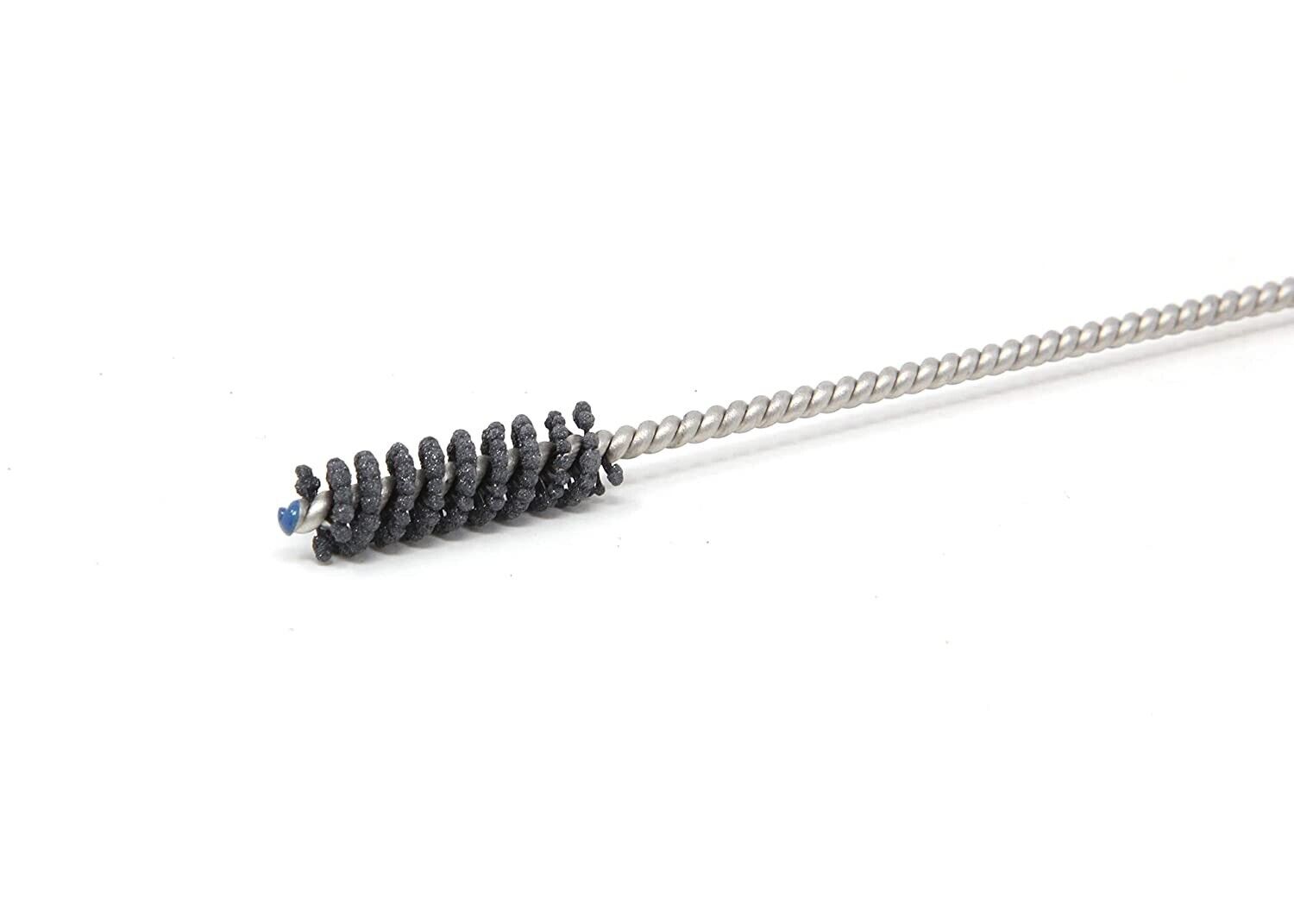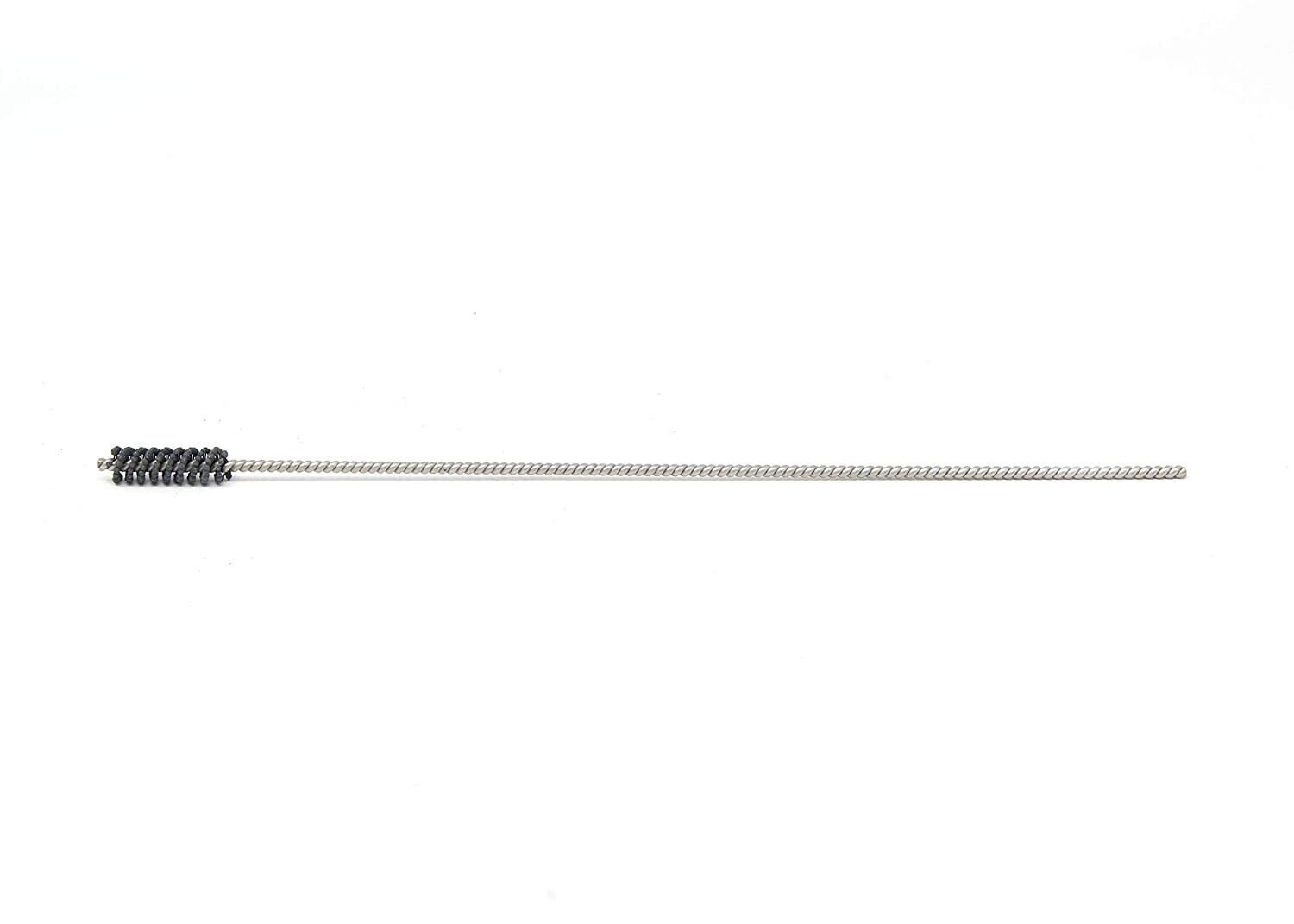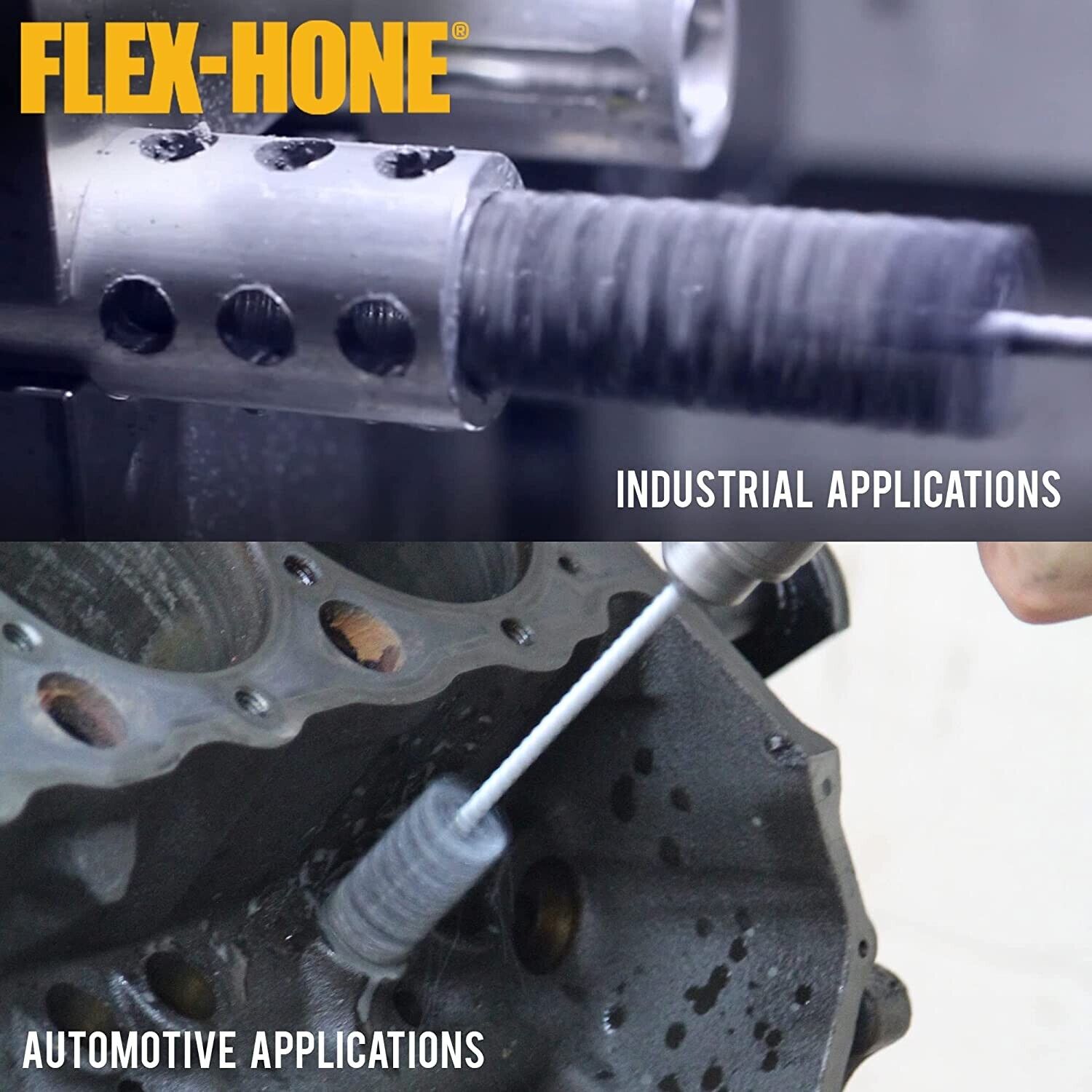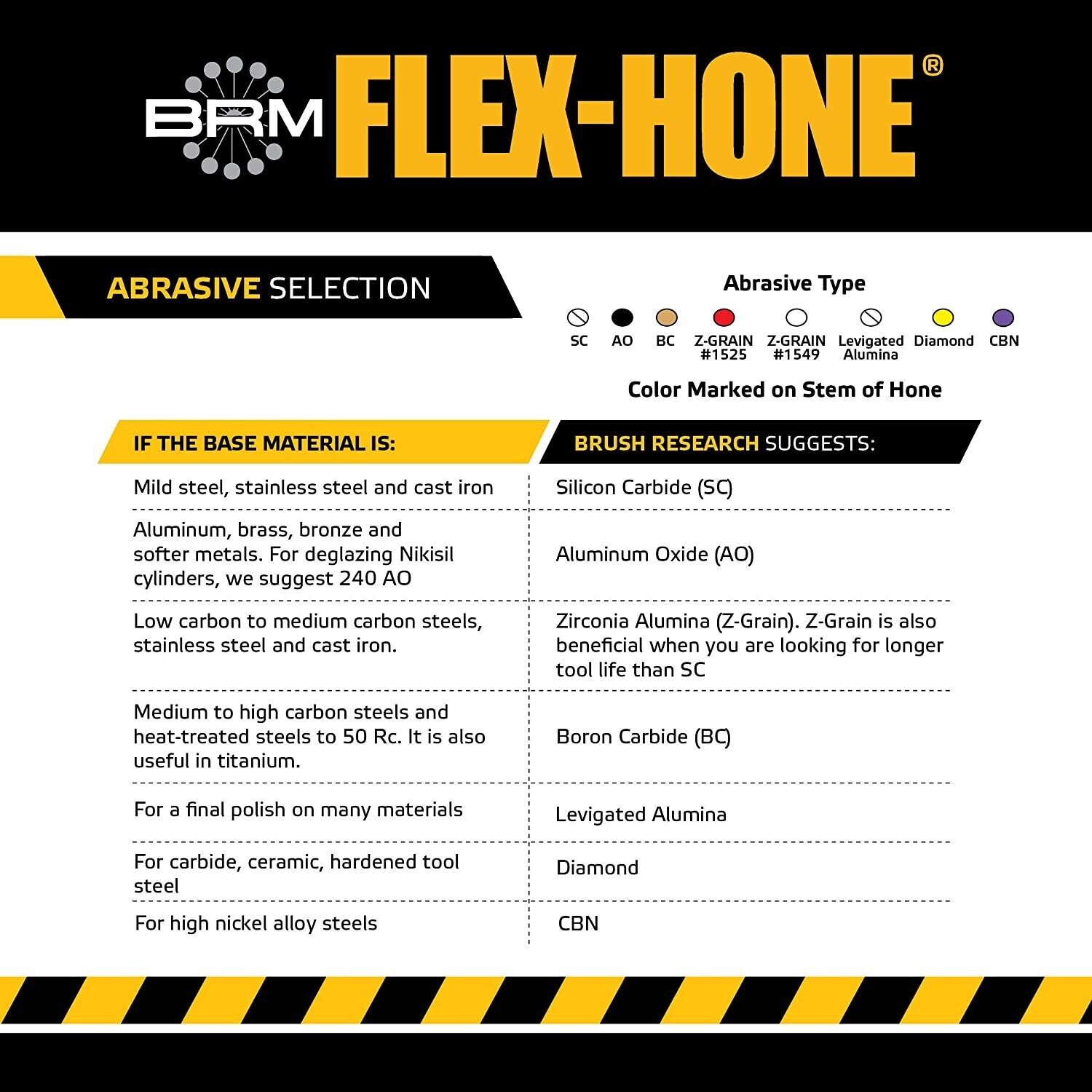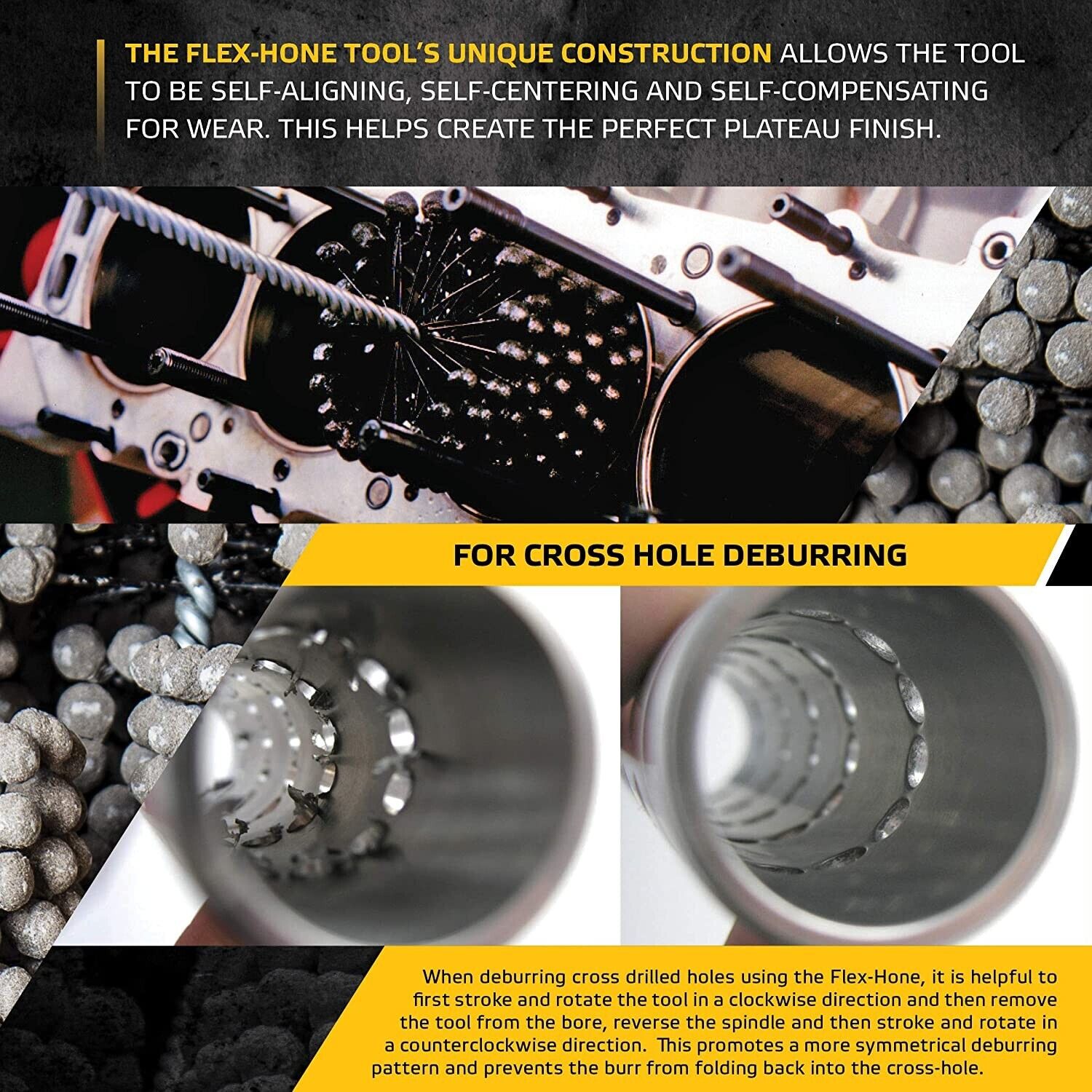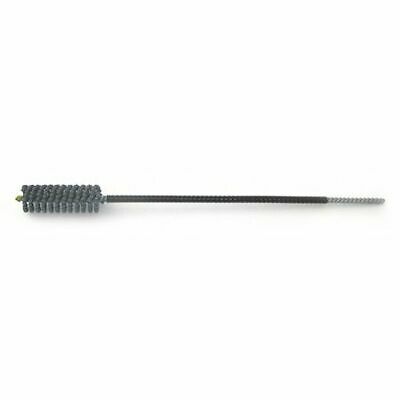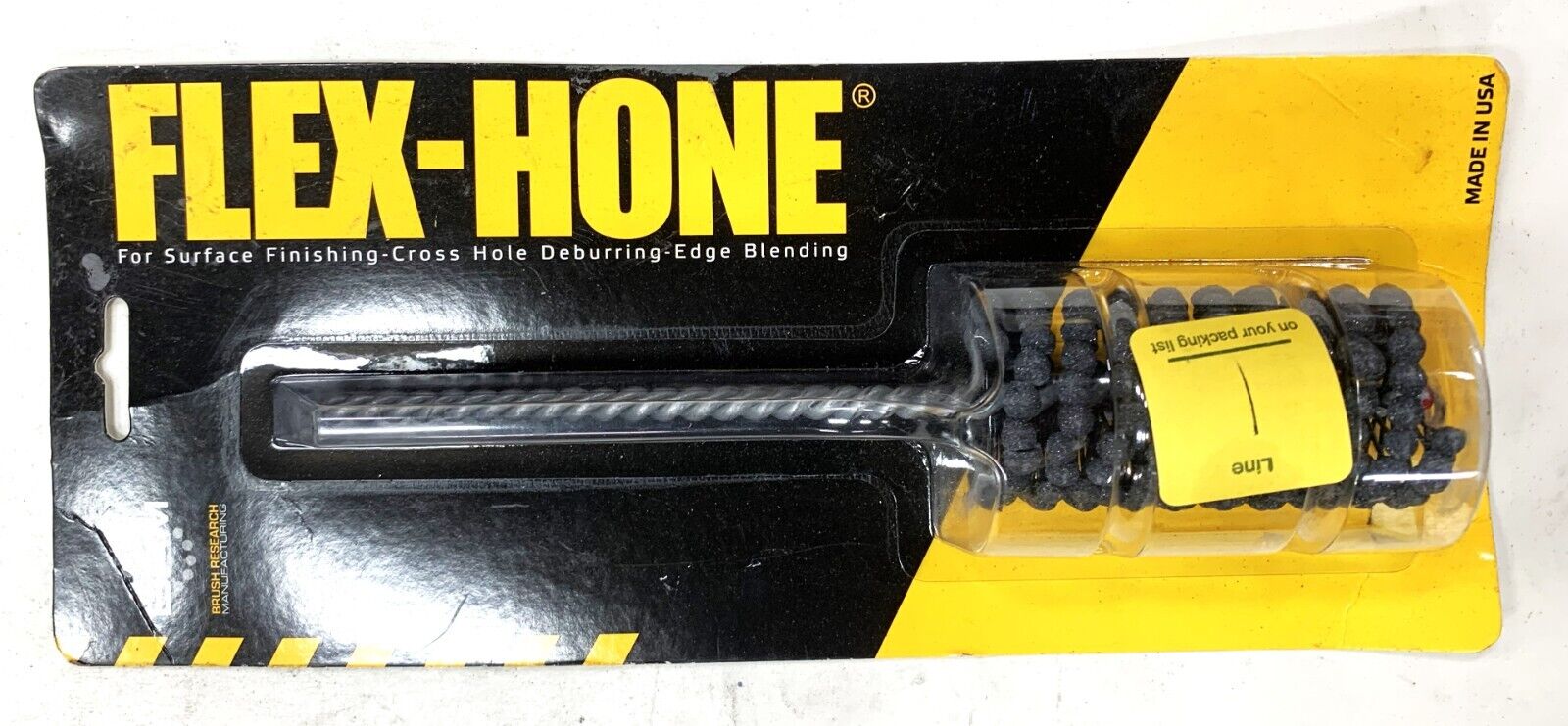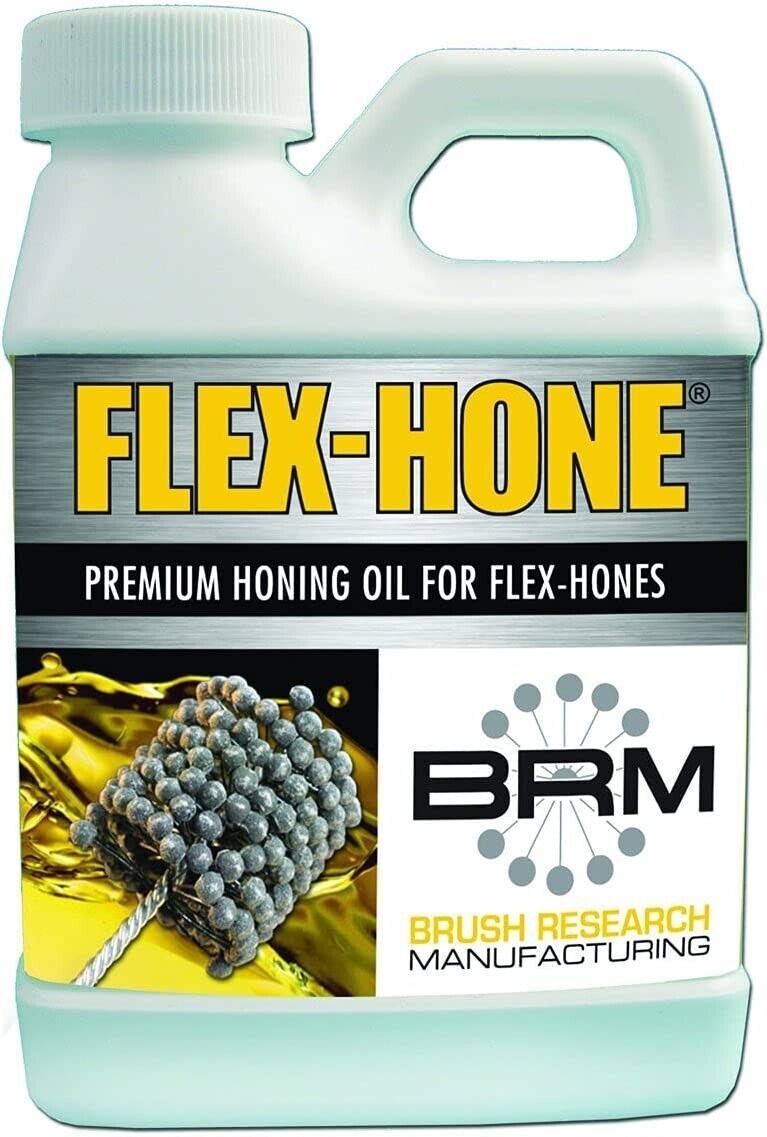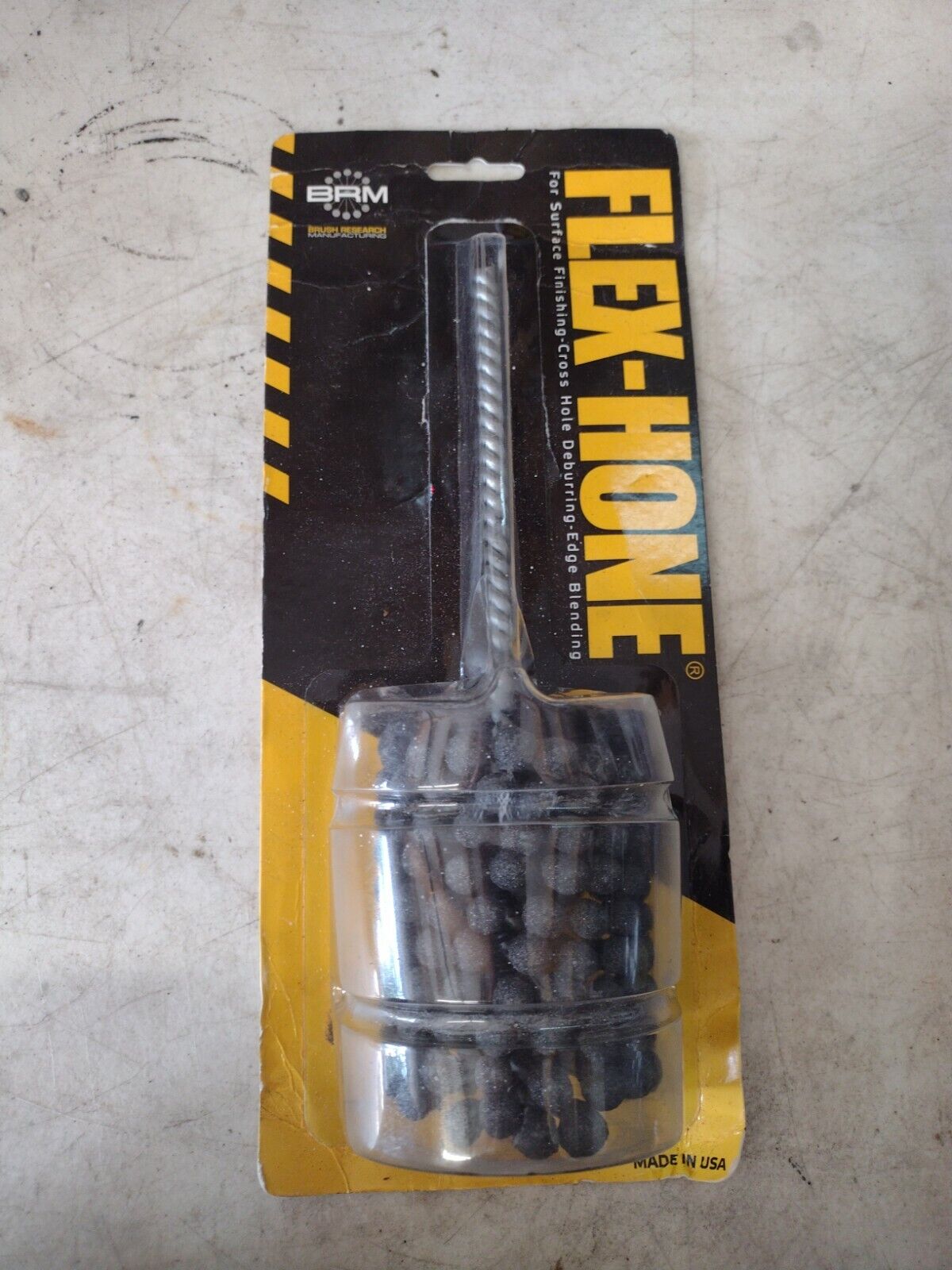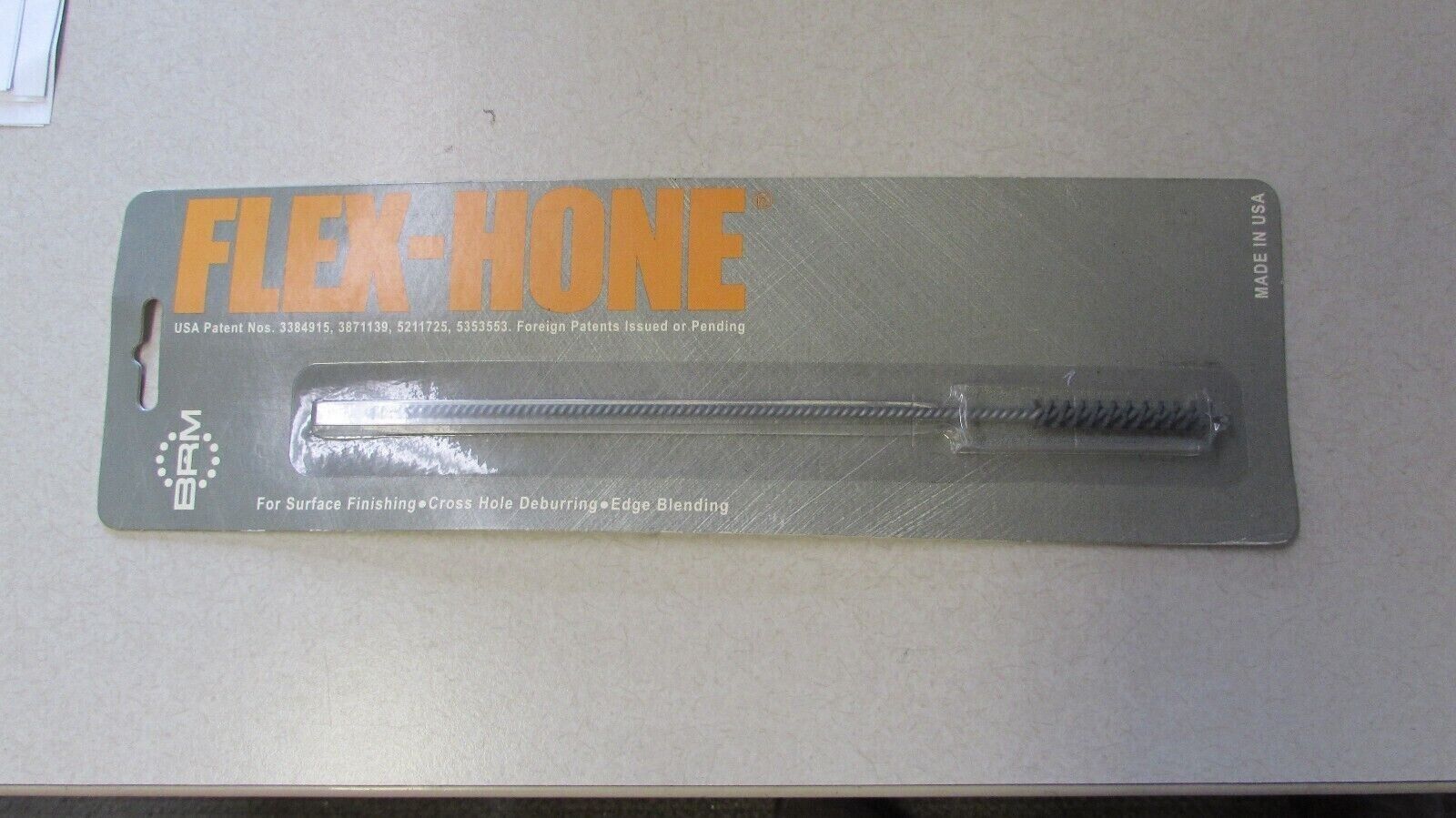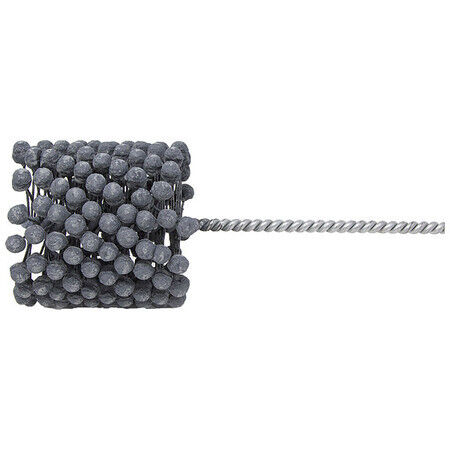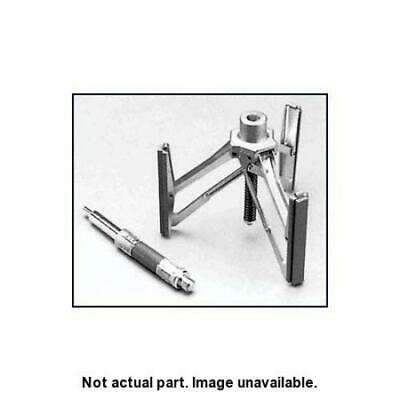-40%
1-1/2" (38MM) FLEX-HONE Cylinder Hone 400 Grit Silicon Carbide
$ 19.79
- Description
- Size Guide
Description
Brush Research 1-1/2" (38MM) FLEX-HONE Cylinder Hone 400 Grit Silicon CarbideFlexible abrasive cylinder hone for surface finishing and cross hole deburring
Self-centering, self-aligning, self-compensating for wear
Use by hand or in CNC equipment
Order by actual bore size, tool produced oversized
The Flex-Hone® tool was originally created by Brush Research Manufacturing to deglaze cylinder walls in automotive applications. Brush Research embraced the benefits of a plateau finish and pioneered the concept of plateau honing culminating in the introduction of the Flex-Hone tool in 1972. The Flex-Hone has gained many nicknames over the years and including ball hone, ball style hone, flexihone, dingleberry hone, bead brush, glaze breaker and glaze buster. Flexible honing with the Flex-Hone tool produces an oil holding cross hatch pattern and a true plateau finish free of cut, torn and folded metal. Any type or size of cylinder can benefit from the Flex-Hone®. These abrasive bead style brushes are produced in standard diameters from 4mm to 36 inches. Nine abrasive types are offered including silicon carbide, aluminum oxide, boron carbide and diamond allowing the tool to be tailored to finish any base material. A choice of 11 different grit selections are available for precise control of finish parameters. The elimination of peaks results in rapid ring seating, better oil control, reduced seepage in hydraulic and pneumatic applications and provides better seal performance and longer seal life. Successful applications include firearm chambers, shotgun barrels, musical instruments, combustion chambers, air compressors, pumps, valve bodies, valve guides, brake cylinders, wheel cylinders and the list goes on and on. Flex-Hone® tools are also very effective for deburring cross drilled holes, port radiusing and edge blending. Because of its unique construction, the Flex-Hone is self-centering, self-aligning, and self-compensating for wear so it does not require an elaborate set-up or special training. Deburring can be effectively automated and combined in the machining process to allow a complete cylinder finish in one operation or it can be employed as a secondary operation with equal results.
